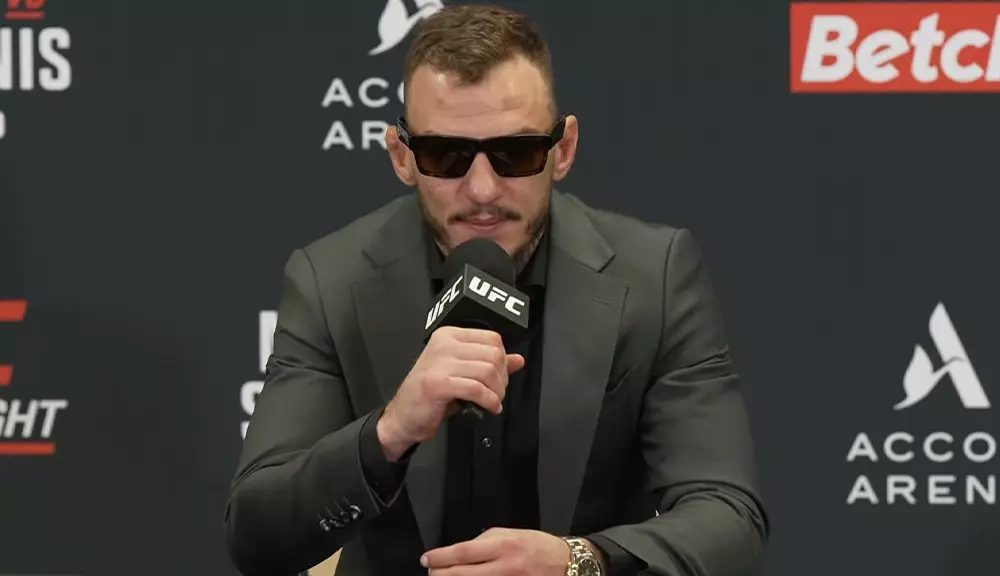The aftermath of UFC Fight Night 243 brought a significant twist in the narratives surrounding two prominent fighters, Renato Moicano and Paddy Pimblett. Moicano, who had previously been eager to face Pimblett, found himself in the unexpected position of being called out after his impressive TKO victory over Benoit Saint Denis in Paris. This shift illustrates a larger dynamic within the UFC, where the playful banter and rivalry that fuel fan engagement can quickly pivot based on the outcomes of fights.
In a surprising move, Pimblett took to social media to challenge Moicano directly, prompting a strong response from the Brazilian fighter. Instead of welcoming the opportunity, Moicano cautioned Pimblett against accepting the bout, ominously stating, “Please don’t accept the fight. I’m going to hurt you. I’m going to elbow your skull.” This interaction not only reflects the intense psychological warfare prevalent in mixed martial arts but also showcases Moicano’s desire to assert his dominance in the lightweight division.
Moicano’s comments reveal a deeper yearning for recognition that has driven his career, particularly as he approaches a decade within the UFC. Expressing an ardent desire for increased exposure, he stated, “I’m looking for cameras because I’ve been in the UFC for 10 years.” This sentiment encapsulates the plight of many skilled fighters who struggle to gain visibility despite their talent and hard work. Moicano’s ambition to appear on “The Ultimate Fighter” serves as a testament to his commitment to expanding his fanbase, thus forging a clearer path toward a championship opportunity.
This longing for public appreciation resonates widely in combat sports, where popularity can often determine a fighter’s trajectory far more than their record. Moicano’s insistence on making his name recognized within the MMA community speaks volumes about the correlation between exposure and incidentally, the financial gains associated with larger audiences. He understands that securing fights against high-profile opponents like Pimblett can catapult him into the limelight he’s been seeking.
While Pimblett currently tops Moicano’s list of desired opponents, he has also set his sights on other contenders such as Dan Hooker, whom he described as “easy money.” This unwavering focus on high-stakes matchups illustrates Moicano’s hunger not only to win fights but to leverage these victories to fast-track himself into title contention. He’s acutely aware of the ruthlessness of the MMA landscape; he cannot afford to squander his current momentum, which he claims includes six consecutive wins in the lightweight division, a statistic he proudly emphasizes to affirm his capability as a serious title contender.
Moicano’s assertion that he has largely been overlooked despite his skills poses an interesting commentary on how the sport sometimes neglects fighters who lack a media-savvy persona or an engaging personality. As he stated, “Go to the top 15 and see somebody with six wins and five finishes. People cannot deny me anymore.” This call to action may serve as a wake-up call to matchmakers, compelling them to reevaluate fighter rankings and the criteria used to assess their worthiness for championship opportunities.
Ultimately, the interaction between Renato Moicano and Paddy Pimblett at this juncture represents more than just a potential matchup; it embodies the broader narrative of visibility and relevance within the UFC. For fighters like Moicano, who have put in the hours and displayed remarkable talent yet remain under the radar, the quest for acknowledgment and respect in the octagon can sometimes feel as daunting as the fights themselves. The coming weeks may prove pivotal for both fighters as they navigate their careers amid the ever-fluctuating sands of MMA fame.

